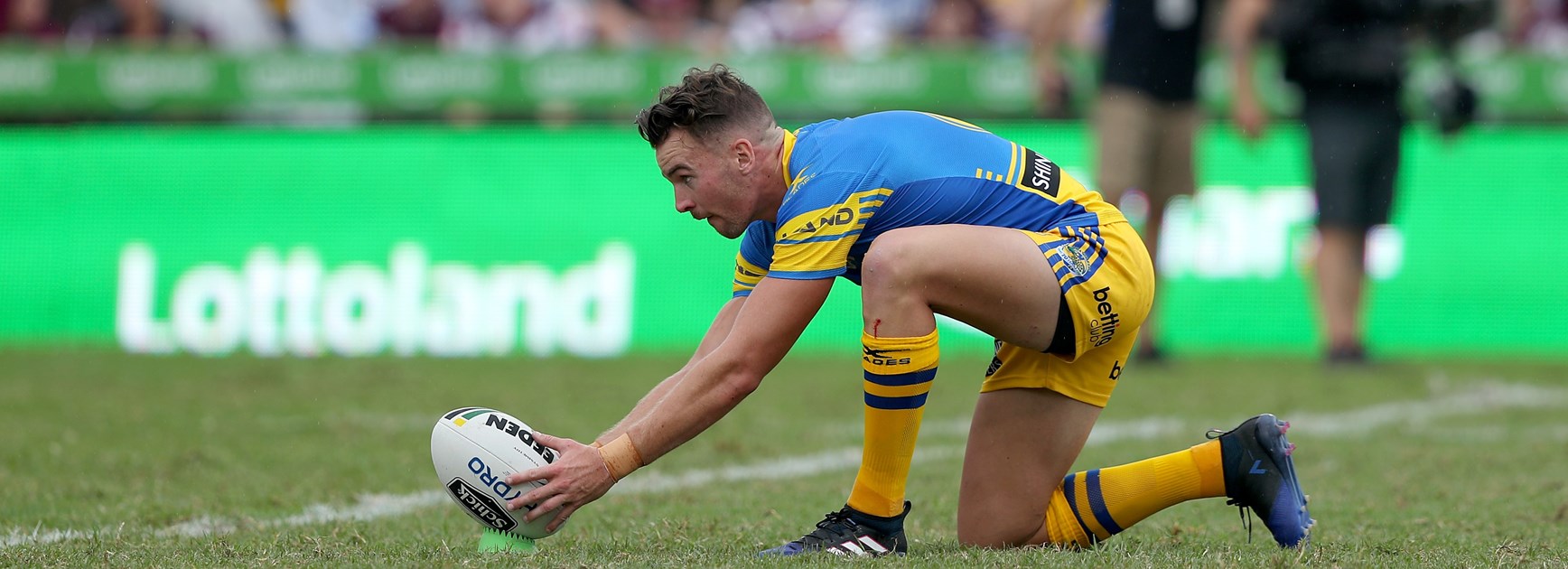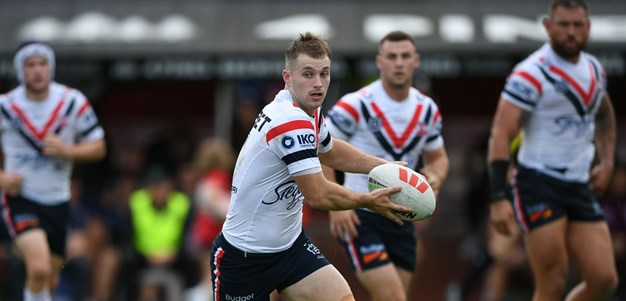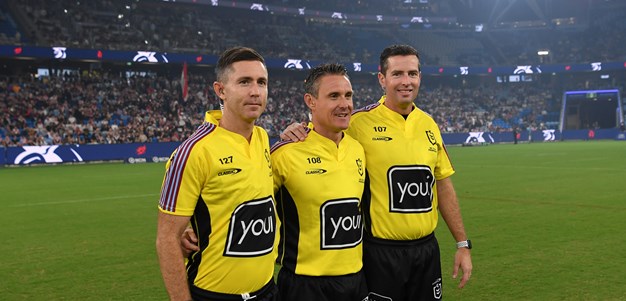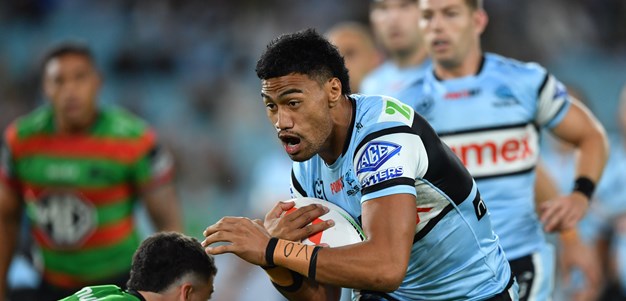
The NRL is aiming to give fans more ball-in-play action than ever before in 2018 with the game's shot clock system extended to cut out delays after conversion attempts.
This season referees will call 30 seconds time off after conversion shots at goal after the shot clock's success in speeding up scrums and drop outs.
The NRL's general manager of elite competitions, former Manly premiership winner Jason King, estimates the rule change will add an extra three minutes of live game time each match, tallying up to an extra 720 minutes – or seven games – across the season.
Figures obtained from the NRL reveal that last year the ball was in-play for an average of 52 minutes and 45 seconds, a slight decrease from 2016 numbers.
But with the mooted additional three minutes expected to bump live 'active' play up to almost 56 minutes, or 70 per cent of total match time, it would be the highest figure since the NRL started recording this facet of the game.
By way of comparison, an International Rugby Board analysis of the 2015 World Cup found the ball was in play for an average 44 per cent of matches, or just over 35 minutes a game.
"At the moment, the time taken for players to return to the half way line to restart play is wasted time as far as the fans are concerned," King said.
"The clock continues to run down (except in the last five minutes of play) but the fans see no football.
"An extra three minutes of actual play can have a big bearing on the outcome of a game."
The new shot clock rule will only apply to conversion attempts, and not penalty goals, after being approved by the NRL's Competition Committee.
The shot clock adjustment is the latest change ahead of the 2018 season, which will see a crack down on illegitimate play-the-balls and players, referees encouraged to use the sin bin for foul play and an overhaul of one-on-one stripping rules.




